








Phone: 212 520 1686
Email: info@yourcpf.org


















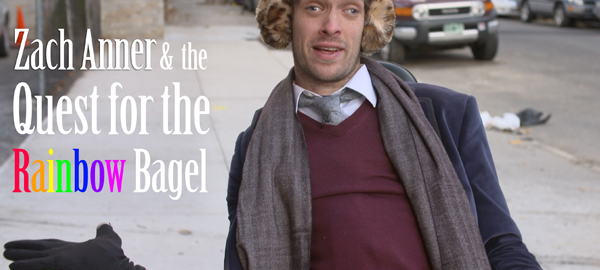
 Are there millions of videos on the Internet? Or is it billions? Whatever the number, no one’s going to get through them all. So here are some of our favorites. Videos about our people and their friends. Stories we think you’ll find enjoyable or inspirational. Trailers for movies we like. Let us know what you think via an email. And let us know your favorites so we can post them too!
Are there millions of videos on the Internet? Or is it billions? Whatever the number, no one’s going to get through them all. So here are some of our favorites. Videos about our people and their friends. Stories we think you’ll find enjoyable or inspirational. Trailers for movies we like. Let us know what you think via an email. And let us know your favorites so we can post them too!
Every parent wonders how their child is doing in school. Are they making friends? Are they studying? Are they learning?
There’s rarely an easy answer. It’s rarer still in the world of disabilities. Students with CP and similar conditions often rely on many supports and services. From scanned materials, to augmentative communication, to paraprofessionals who sit beside kids and transcribe answers for tests. It’s no wonder that grades of kids with disabilities don’t always reflect their true abilities.
If you’re a parent of a child with disabilities, you’ll instantly relate to this week’s episode of Speechless, where Kenneth’s support of JJ goes a bit too far when he asks “JJ, is the answer A, or B, or, get ready, how about this one: Ceeeeeeee?” It’s a fabulously funny moment. Yet it’s an honest look at the real complexities around finding the right amount of support in the classroom.
We’re thrilled this week that our classroom has two super thoughtful experts, Kirk Behnke and Craig Bugaj, who explore how to find the right level of guidance and intervention – in everything from communication to taking tests.

Every parent wonders how their child is doing in school. Are they making friends? Are they studying? Are they learning?
There’s rarely an easy answer. It’s rarer still in the world of disabilities. Students with CP and similar conditions often rely on many supports and services. From scanned materials, to augmentative communication, to paraprofessionals who sit beside kids and transcribe answers for tests. It’s no wonder that grades of kids with disabilities don’t always reflect their true abilities.
If you’re a parent of a child with disabilities, you’ll instantly relate to this week’s episode of Speechless, where Kenneth’s support of JJ goes a bit too far when he asks “JJ, is the answer A, or B, or, get ready, how about this one: Ceeeeeeee?” It’s a fabulously funny moment. Yet it’s an honest look at the real complexities around finding the right amount of support in the classroom.
We’re thrilled this week that our classroom has two super thoughtful experts, Kirk Behnke and Craig Bugaj, who explore how to find the right level of guidance and intervention – in everything from communication to taking tests.
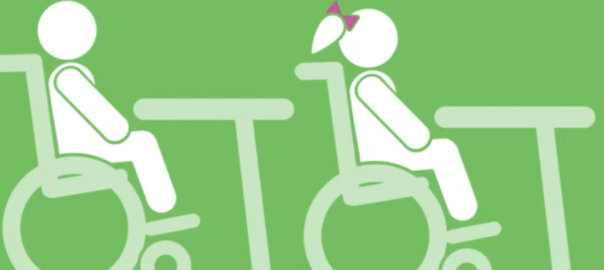
Every parent wonders how their child is doing in school. Are they making friends? Are they studying? Are they learning?
There’s rarely an easy answer. It’s rarer still in the world of disabilities. Students with CP and similar conditions often rely on many supports and services. From scanned materials, to augmentative communication, to paraprofessionals who sit beside kids and transcribe answers for tests. It’s no wonder that grades of kids with disabilities don’t always reflect their true abilities.
If you’re a parent of a child with disabilities, you’ll instantly relate to this week’s episode of Speechless, where Kenneth’s support of JJ goes a bit too far when he asks “JJ, is the answer A, or B, or, get ready, how about this one: Ceeeeeeee?” It’s a fabulously funny moment. Yet it’s an honest look at the real complexities around finding the right amount of support in the classroom.
We’re thrilled this week that our classroom has two super thoughtful experts, Kirk Behnke and Craig Bugaj, who explore how to find the right level of guidance and intervention – in everything from communication to taking tests.
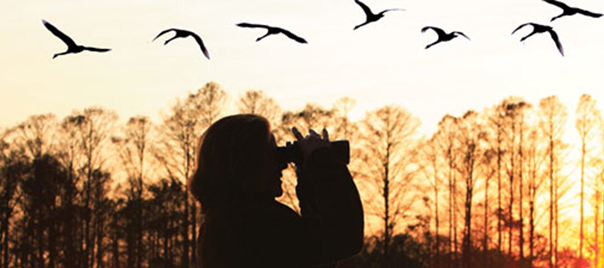
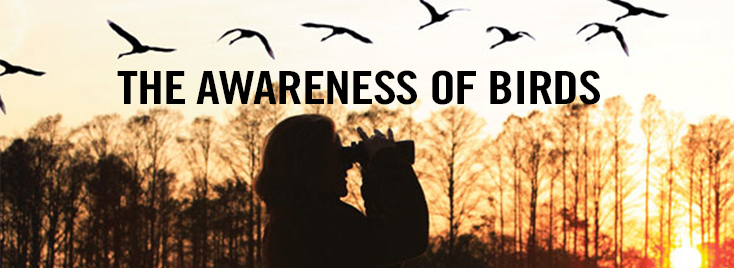
I met a man last year who photographs birds. I was new to dating after my 22-year-old marriage ended, and I very much wanted to be open to new experience. Despite having absolutely no knowledge or even interest in birds or birding or bird photography, I found his photos mesmerizing. His passion for birds seemed as vast as the patience it took to really capture them through photography, and I only became aware of that patience when I went out walking with him in an Orange County park last year, one of many that dot the otherwise drab, cookie-cutter landscape. Within moments my friend pointed out a startlingly blue bird on a branch in a nondescript tree ahead of us and a small brown bird at the base of the trunk. He looked up and scanned the sky.
“There’s a red-tailed hawk”, he said and pointed to a bird soaring high above us. We walked over and sat on a curb at the edge of the park and faced a dirt gulley that ran along the road. “See the Burrowing Owls?” he asked and raised his camera with the very long lens. Across the street, blending into the brown dirt were three small owls, about eight inches high, staring at us, swiveling their heads, looking up into the sky and then darting down into a hole. I might as well have been dropping down into a hole, a proverbial Alice, into a world that I had absolutely no awareness of but that had existed, evidently, always.
This is a post about awareness. “You’ll be writing your blog from your unique standpoint of bluntness and anger,” an organizer said in a conference call we had recently about this upcoming project. “The theme is awareness during Cerebral Palsy Awareness Month.” I winced, to tell you the truth. As a writer who happens to also be the mother of a young adult with severe disabilities, including refractory epilepsy and cerebral palsy, I struggle daily with issues of identity. I am aware, nearly constantly, of my daughter’s and my interdependence, of how our very identities can merge and separate and how that movement defines my writing. I can be angry and am very much blunt as I strive to strip my writing of sentimentality and cliché, to always honor my own truth, the truth and awareness of how disability has affected both myself and my daughter who has no voice, other than mine, to tell her own story. At the same time, I am exquisitely aware that despite her disabilities, she has her own story and integrity, that it’s an honor and a privilege to not only care for her but to tell her story straight and to help ensure that she is treated with dignity and able to live a life of beauty.
“Oh God, I hate these “awareness” months,” I think I replied. The people on the conference call laughed at this corroboration of my inclination toward anger and irritability at worst and dark humor at best. Our family has navigated stares and silence in public for over two decades with an occasional pitying glance or clichéd remark about how “special” we are to do what we do, or how “God only gives us what we can handle.” People, however well-meaning, don’t realize that I have spent countless hours over the past twenty years fighting for the right for my daughter to receive an education, health insurance, healthcare and even the right to exist. I’m not sure why, but we also live in a culture that sometimes even defines our humanity by our ability to speak. My daughter is non-verbal and thus often invisible, even to members of my own family and close friends. I am irritated that during these special marked months, I am somehow called upon to step up this awareness activity more than I already do. Why can’t every month be one where everyone is aware that the world is made up of people of vastly different abilities and that our awareness should extend to even those who might not be able to express themselves in conventional ways? Why must we mark them with specific monikers to get people’s attention in a certain time period? How can awareness to what is all around us be consigned to a time period?
I notice birds now even in my city neighborhood, darting from bush to tree in the alley outside my kitchen window, alighting on the palm tree that reaches up into the southern California blue sky and on the wires that crisscross my backyard. In an article in The Paris Review, Megan Mayhew Bergman wrote, “Birding is a heightened, finely tuned way of seeing.” I am aware that birds and owls and small creatures are, quite literally, everywhere around me and have always been everywhere around me. I am still seeing the man who brought this awareness to me, have begun to compile what birders and bird photographers call a life list. You see where I’m going.
I feel slightly embarrassed these days when I notice a bird in the bush outside of the grocery store or see a hawk swoop down out of the sky on the freeway. While I am conscious of this new-found sensitivity, I know that it isn’t so much my observation that brings them into being but that they have been there all along. Awareness of disability, of those who are “different,” who are, perhaps, more colorful or might otherwise blend into the landscape should be an ongoing exercise, something heightened and finely tuned. People like my daughter, like your son or your cousin or your neighbor or your co-worker are all around you. They are alive and intricately woven into the world by necessity. Be aware. Observe. See them.
Elizabeth Aquino
Blog: a moon, worn as if it had been a shell
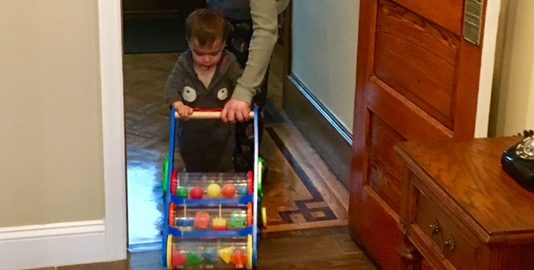
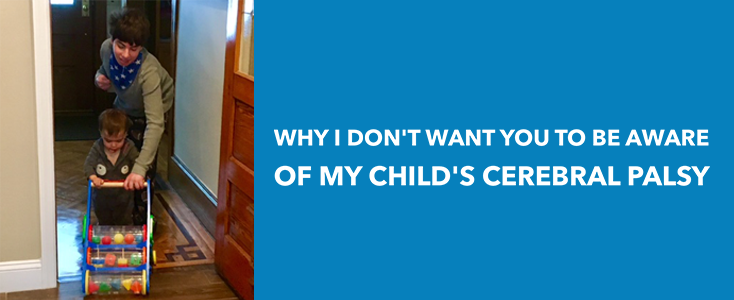
Max helped his little brother lift a wheeled toy into the kitchen the other day. There’s a piece of wood at the entryway that Ben can’t navigate on his own, and I watched as Max lent him a hand. Seemingly, this is no big deal except Max has cerebral palsy and fine-motor skill challenges, and it took a fair amount of effort for him to grasp the wood handle and lift the toy up.
As usual, I was aware of his abilities and proud. Of course I am: I’m Max’s mom, the head of his cheerleading club and his faithful publicist. Sadly, though, many people out there are not aware of the abilities of people with cerebral palsy. Given that it’s Cerebral Palsy Awareness Month, I am here to make you…aware.
Until I had a child with CP, I wasn’t aware of the wide range of types it encompasses. Some people with CP move by walking; some use wheelchairs, walkers and other mobility devices. Some people with CP have minor weaknesses in one limb; some have weakness or spasticity in all of them. Some people with CP have cognitive impairment; some are as brilliant as they come.
Max has spastic four-quad CP. He walks, with support from leg braces. He has issues using his hands and with speech. He has intellectual disability, and while he’s plenty bright learning does not always come easily. In other words, like any human out there, he has his challenges—and like any human out there, he has his strengths and talents. To name a few: He’s got an amazing memory and sense of direction (Max is as trustworthy as our car’s navigator); he’s got a high emotional IQ (“Are you OK?” is one of his favorite phrases); and he’s amazingly personable and charming. Also: He’s got good hair.
People notice how cute he is. But otherwise, I’ve found that people who don’t know Max tend to only see the cerebral palsy instead of seeing the whole of who he is. They are acutely aware of his disability, and because that can make people uncomfortable, they aren’t sure what to say to him or how to act around him. “How old is he?” people ask as Max is standing right there next to me. Over the years, when I’ve told people that Max has cerebral palsy, the responses I’ve gotten have ranged from “Awwww” [head cocked to one side, looking sad] to “I’m sorry.”
“Oh, don’t be sorry,” I’ll chirp. “He is amazing.” And he is. (See: “Max’s head cheerleader and publicist.”)There is a real lack of awareness out there that children and adults with cerebral palsy are fully-formed children and adults who share the basic drives we all have: to connect with others, to explore, to learn, to have fun, to live a good life and to regularly eat their body weight in chocolate ice-cream. (Oh, wait, that’s just Max.) This awareness is impossible to achieve if people don’t get that a disability is just one part of who a person is—or, worse, they pity those who are disabled.
A few years ago, I spoke on a panel with blogger Katinka Neuhof, who writes at The Fabulous Adventures of a Four-Legged Woman. She told the story of rolling down a New York City street in a wheelchair, with her son by her side, when a passerby stopped and announced, “I’m going to pray for you.” I’ve heard similar stories from parents of children with CP. On occasion, strangers have approached me when I’ve been out with Max and said, “God bless you,” as if Max is a tragedy and I am a saint for being his mom.
True awareness about cerebral palsy starts with two key things: 1) People being aware of their misconceptions and preset ideas about what it means to have a disability; and 2) People viewing, approaching and treating those with CP as if they were any other people. Of course, accommodations may be necessary to level the playing field—but again, it all starts with the understanding and acceptance that children and adults with CP are not defective people but just plain old p-e-o-p-l-e.
Actually, come to think of it, I don’t want you to be aware of my child’s cerebral palsy. Maybe we should rename this Cerebral Palsy Non-Awareness Month?! Should you meet Max, I’d like you to talk directly to him, not to me. Ask him questions, not me. There’s no need to treat him with kid gloves or any elevated level of politeness.
Find out what his interests are, what his favorite school subjects are, what he’s interested in doing when he grows up. Joke around with him. Tease him, even. You know: Treat him like any teen, anywhere.
That would be true awareness.

In this week’s fabulous and hilarious episode of Speechless, JJ DiMeo heads to, of all places, the supermarket aisle to develop all sorts of clever strategies to assert his independence.
Learning to effectively tap into those skills should start early, with a focus on finding the best ways to support a developing brain. We hope this weeks insights – more from Dr. Ros Boyd, and new ones from Karen Janowski – will provide some great tips on how to make that happen.
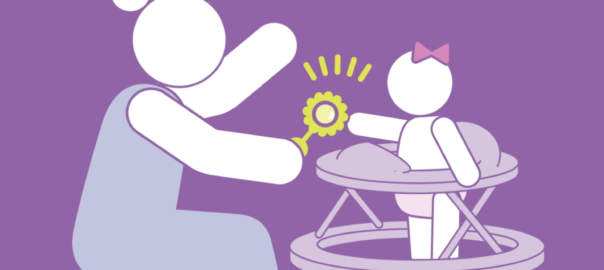
In this week’s fabulous and hilarious episode of Speechless, JJ DiMeo heads to, of all places, the supermarket aisle to develop all sorts of clever strategies to assert his independence.
Learning to effectively tap into those skills should start early, with a focus on finding the best ways to support a developing brain. We hope this weeks insights – more from Dr. Ros Boyd, and new ones from Karen Janowski – will provide some great tips on how to make that happen.

In this week’s fabulous and hilarious episode of Speechless, JJ DiMeo heads to, of all places, the supermarket aisle to develop all sorts of clever strategies to assert his independence.
Learning to effectively tap into those skills should start early, with a focus on finding the best ways to support a developing brain. We hope this weeks insights – more from Dr. Ros Boyd, and new ones from Karen Janowski – will provide some great tips on how to make that happen.

 Are there millions of videos on the Internet? Or is it billions? Whatever the number, no one’s going to get through them all. So here are some of our favorites. Videos about our people and their friends. Stories we think you’ll find enjoyable or inspirational. Trailers for movies we like. Let us know what you think via an email. And let us know your favorites so we can post them too!
Are there millions of videos on the Internet? Or is it billions? Whatever the number, no one’s going to get through them all. So here are some of our favorites. Videos about our people and their friends. Stories we think you’ll find enjoyable or inspirational. Trailers for movies we like. Let us know what you think via an email. And let us know your favorites so we can post them too!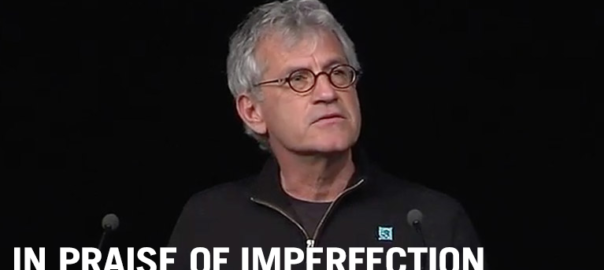
 Are there millions of videos on the Internet? Or is it billions? Whatever the number, no one’s going to get through them all. So here are some of our favorites. Videos about our people and their friends. Stories we think you’ll find enjoyable or inspirational. Trailers for movies we like. Let us know what you think via an email. And let us know your favorites so we can post them too!
Are there millions of videos on the Internet? Or is it billions? Whatever the number, no one’s going to get through them all. So here are some of our favorites. Videos about our people and their friends. Stories we think you’ll find enjoyable or inspirational. Trailers for movies we like. Let us know what you think via an email. And let us know your favorites so we can post them too!
If you want to understand someone’s life, listen to their stories.
We’re all learning to understand the DiMeo’s life as we watch their story on Speechless. However, for people with CP, stories can be harder to tell. This week, our experts give tips on supporting storytelling for people who use augmentative communication. And Dr. Ros Boyd provides some non-fiction reading – about a critical concept: brain plasticity.
Our hope is these great friends of CPF help us all live happily ever after.

If you want to understand someone’s life, listen to their stories.
We’re all learning to understand the DiMeo’s life as we watch their story on Speechless. However, for people with CP, stories can be harder to tell. This week, our experts give tips on supporting storytelling for people who use augmentative communication. And Dr. Ros Boyd provides some non-fiction reading – about a critical concept: brain plasticity.
Our hope is these great friends of CPF help us all live happily ever after.
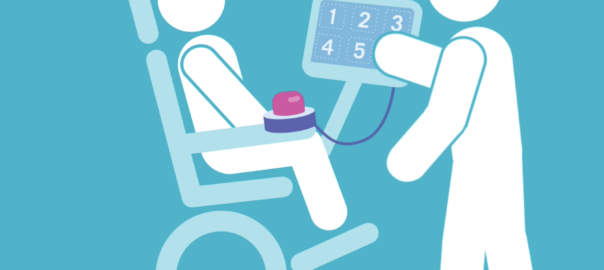
If you want to understand someone’s life, listen to their stories.
We’re all learning to understand the DiMeo’s life as we watch their story on Speechless. However, for people with CP, stories can be harder to tell.
This week, our experts give tips on supporting storytelling for people who use augmentative communication. And Dr. Ros Boyd provides some non-fiction reading – about a critical concept: brain plasticity.
Our hope is these great friends of CPF help us all live happily ever after.



















It’s been energizing – and a bit dizzying – as Speechless has looked at the diverse challenges faced by individuals who struggle with speech. But if there’s one thing we can take away, it’s that addressing these challenges is important. Communication, in any form, is central to life.
So as Speechless brings together a group of kids with diverse challenges for an Oscar Party, we’re bringing together a diverse group of experts to help you support the challenges faced by kids who use speech generating devices. Thanks to Pati King-DeBaun, Deanna Wagner, and Howard Shane for sharing their expertise and insights. In fact, we’re voting them all Best Supporting Speech Therapists!

It’s been energizing – and a bit dizzying – as Speechless has looked at the diverse challenges faced by individuals who struggle with speech. But if there’s one thing we can take away, it’s that addressing these challenges is important. Communication, in any form, is central to life.
So as Speechless brings together a group of kids with diverse challenges for an Oscar Party, we’re bringing together a diverse group of experts to help you support the challenges faced by kids who use speech generating devices. Thanks to Pati King-DeBaun, Deanna Wagner, and Howard Shane for sharing their expertise and insights. In fact, we’re voting them all Best Supporting Speech Therapists!
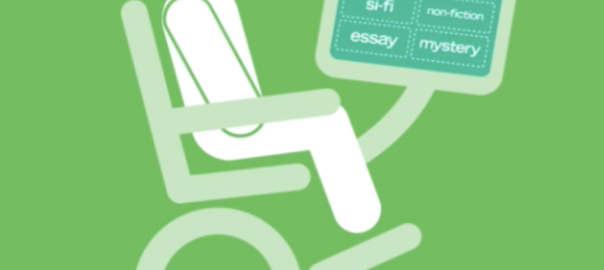
It’s been energizing – and a bit dizzying – as Speechless has looked at the diverse challenges faced by individuals who struggle with speech. But if there’s one thing we can take away, it’s that addressing these challenges is important. Communication, in any form, is central to life.
So as Speechless brings together a group of kids with diverse challenges for an Oscar Party, we’re bringing together a diverse group of experts to help you support the challenges faced by kids who use speech generating devices. Thanks to Pati King-DeBaun, Deanna Wagner, and Howard Shane for sharing their expertise and insights. In fact, we’re voting them all Best Supporting Speech Therapists!

Tonight, JJ goes AAC! (That means Augmented and Alternative Communication).
In tonight’s episode of Speechless, JJ finally answers the question: “Why do you use Kenneth instead of a speech device?”
The answer is a complex one – because communication is a complex thing. That’s particularly true with AAC. It’s not the way most of us communicate – and so it can be difficult for a parent or teacher to support.
This week begins a three part series on Speech Generating Devices. We know you’ll enjoy these valuable tips and insights from our experts. Share them with teachers and professionals. Share them with your kids. And, most of all, share the belief that we all have so much to communicate! (And that’s especially true for the writers, cast, and crew of our favorite TV show!)

Tonight, JJ goes AAC! (That means Augmented and Alternative Communication).
In tonight’s episode of Speechless, JJ finally answers the question: “Why do you use Kenneth instead of a speech device?”
The answer is a complex one – because communication is a complex thing. That’s particularly true with AAC. It’s not the way most of us communicate – and so it can be difficult for a parent or teacher to support.
This week begins a three part series on Speech Generating Devices. We know you’ll enjoy these valuable tips and insights from our experts. Share them with teachers and professionals. Share them with your kids. And, most of all, share the belief that we all have so much to communicate! (And that’s especially true for the writers, cast, and crew of our favorite TV show!)








